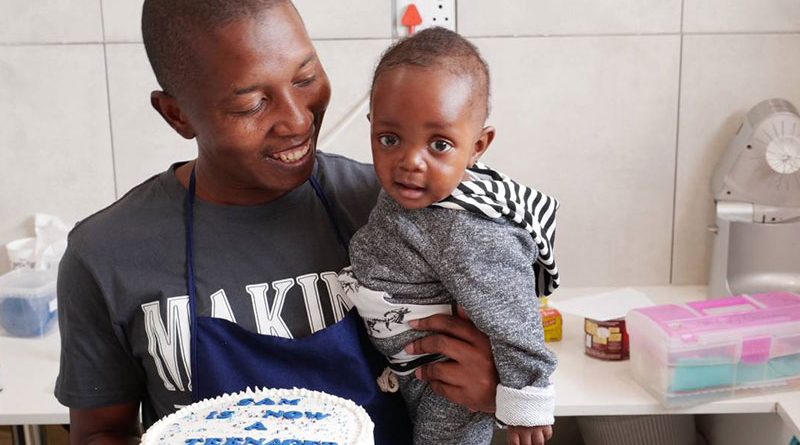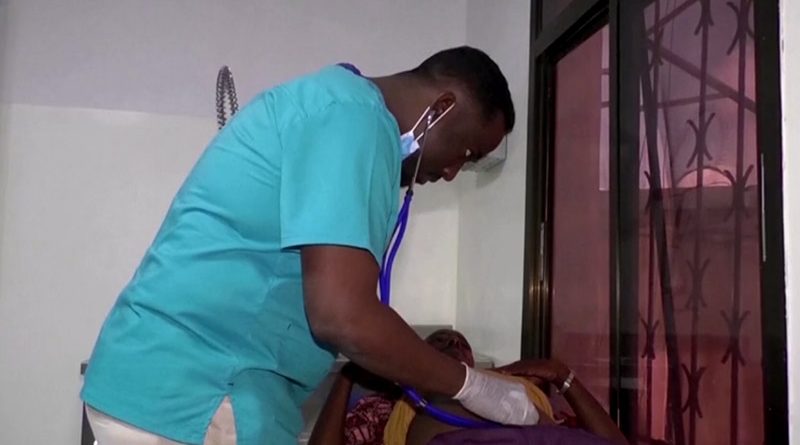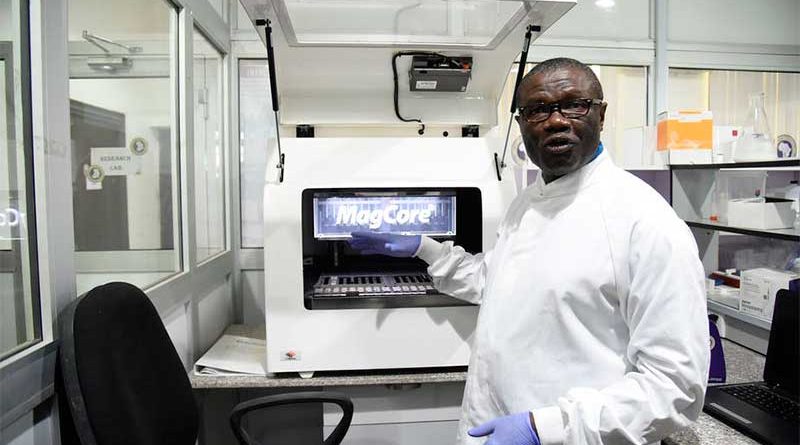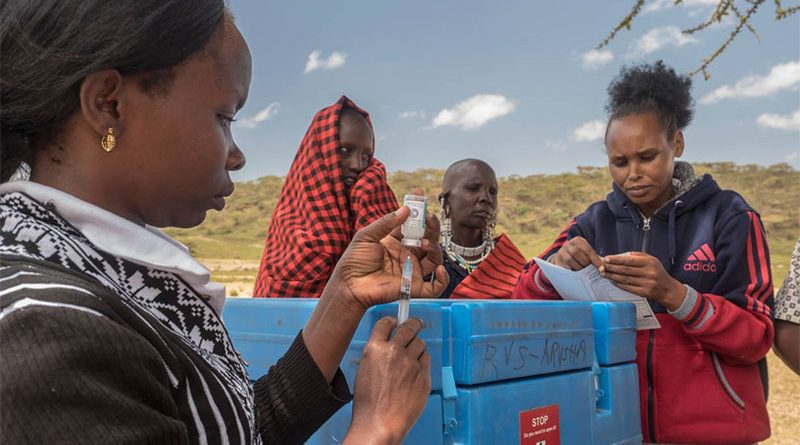SBERG
FOR Davy Tsopo, a WiFi password changed his life.
When Tsopo lost his cleaning job at a Johannesburg restaurant during the lockdown, a neighbour thought sharing his password might help distract Tsopo from his money worries.
At first, Tsopo watched episodes of U.S. reality baking show Cake Boss to pass the time as he and his wife cared for their newborn son but soon found himself scribbling down recipes for chocolate gateau, scones, biscuits and red velvet cake too.
“This is where it all began,” said Tsopo, 35, holding a worn-out notebook filled with the recipes in the kitchen he shares with four other families living in his apartment block.
With the help of former colleagues, neighbours and even anonymous good Samaritans, his impromptu cake business – Cakey by Davy – exploded, with South Africans as far afield as Japan, Italy and Ireland ordering cakes for family back home.
Cakey by Davy now has more than 1,000 Instagram followers, and Tsopo has given television interviews and been invited to speak at entrepreneurial events.
He has been baking at least 10 cakes a week and is making twice his previous salary.
Working from home – instead of doing 16-hour shifts at the restaurant – means he can also spend time with his son, who is now nine-months-old, while his wife is at work.
“My former boss called me when he saw my company getting attention and said he’s sorry he wasted my time. I told him he hadn’t, everything happens for a reason, and losing my job as a cleaner was my blessing in disguise,” Tsopo said.
He said many of his Instagram followers were motivated by the global Black Lives Matter anti-racism protests, which saw many South African social media users urging each other to support Black-owned businesses hit by the coronavirus pandemic.
But Cakey by Davy drew support from all corners.
A friend designed the company logo, another helped him enter a competition in which he won a laptop, a neighbour donated baking tins, a customer started giving him IT lessons. One unknown well-wisher even delivered a WiFi router to his home.
“Maybe some people thought because I was a cleaner, I was nothing, a useless thing,” said Tsopo, wearing his baking apron in preparation for his next order.
“But my story is a reminder to never undermine someone.”
THE EXODUS SOUTH
A month after South Africa’s nationwide coronavirus lockdown was announced in March, three million people had lost their jobs and one in five were going hungry, a survey by several local universities found.
Many immigrants, like Tsopo who comes from Zimbabwe, were among the hardest hit by the collapse of the job market during the lockdown, which drove unemployment rates to more than 30%.
“I don’t want to lie to you, I was so stressed when I lost my job, but I have never had that begging mind. I wanted to start my own thing and be my own boss” said Tsopo, cradling his son, Travis, in the communal kitchen.
Originally from the Zimbabwean city of Bulawayo, Tsopo joined the estimated 600,000 Zimbabweans living in South Africa, according to the most recent government data from 2016, representing about 40% of South Africa’s foreign-born residents.
Unable to afford university fees, he worked as a cleaner and an informal trader after leaving school.
His first attempt at business ended when police confiscated the memory cards and USB ports he was selling outside mines in his homeland – taking all his savings with them and spurring him to join the exodus south.
“The economic hardships in Zimbabwe are too tough. Jobs are scarce. I had no choice but to join the great trek to South Africa,” he said, leaving with just enough money to buy a ticket to Johannesburg and stay with his cousin until he found work.
‘THE REAL CAKE BOSS’
Despite the success of his business, money worries are never far away as the pandemic continues to weigh on Africa’s second-largest economy.
“What if things get worse? What if there is another pandemic and I fall into debt?” said Tsopo, his fingers stained green from the food colouring he used to prepare his last order.
South Africa has the highest number of confirmed COVID-19 cases on the continent at about 752,000, and more than 20,000 deaths, according to the African Centre for Disease Control and Prevention.
Tsopo said one day he would like to open his own bakery, where customers can come and drink coffee and order bespoke cakes for special occasions.
In the meantime, he is enjoying being his own boss and having more time to spend with his family, and more sleep.
The first few months of Travis’s life were spent in the kitchen with his dad, sampling icing and watching him mix flour, eggs, milk and butter together. Now he is older, Tsopo’s cousin babysits Travis while Tsopo bakes.
“I didn’t know this kind of life before, I didn’t know this was possible for me… I feel free,” said Tsopo, cracking an egg with a knife as he started work on his next cake.
“Imagine, one day I may be asking people to send in their CVs to work at my own bakery. Then I’ll be the real cake boss.”
Source – The African Mirror
HAVING scraped money together following medical studies abroad, Somali doctor Abdullahi Sheikdon Dini opened Mogadishu’s first advanced diagnostic laboratory in January.
Its arrival could hardly have been better timed because, just two months later, the coronavirus epidemic reached the Horn of Africa country.
Since then Medipark Diagnostics, which he runs with five other doctors who pooled $1 million to buy equipment, has become a linchpin of the country’s creaking, donor-supported health infrastructure.
Hospitals in the battle-scarred city that once had to wait weeks for blood test results now use the lab to test for conditions including HIV and hepatitis.
But, as the Somali government has acknowledged, it is in the fight against COVID-19 that Medipark has made its most visible mark.
“We had the supplies and our molecular pathologists were in touch with other pathologists doing COVID-19 tests in other countries,” said Dini, 37, whose studies took him to India and China.
Until July, Medipark was the only private lab in the city testing for the virus, but since then its technicians have trained government health workers to conduct tests.
“We were needed … and we were appreciated,” he said.
Medipark has arranged import pipelines of reagents needed for tests, including the polymerase chain reaction (PCR) test used for COVID-19. It employs staff from Kenya, Lebanon and India to operate and maintain equipment imported from Europe, Asia and the United States.
Somalia has been plagued by conflict since 1991, and outbreaks of diseases such as cholera are common.
More than 2 million people do not have enough food. Many live in crowded, unsanitary camps, creating fears COVID-19 could scythe through a vulnerable population.
So far, that hasn’t happened. The health ministry has recorded 4,229 infections and 107 deaths in the pandemic though, with large swathes of the country are off-limits due to the fighting, that is likely to be an undercount.
Medipark lab is next to Hotel Shamo, where a 2009 bombing killed 19 people during medical student graduation. Dini was there and the memories are still raw, but he and his fellow doctors are proud to be back home.
“I am glad to help my community and make a difference,” said Ali Muse, who practised in Rwanda and South Sudan before returning two years ago to help open the lab.
Source: The African Mirror
NIGERIA, like other African countries, wasn’t spared from the spread of the coronavirus pandemic. To overcome this challenge, countries have been advised to keep testing, treating and isolating to reduce infections.
Nigeria has been expanding its capacity to test. The country’s laboratories can carry out about 18,000 tests per million daily, but this can be improved. The country ought to be doing about 40,000 – 50,000 tests daily.
Nigeria successfully controlled Ebola and is applying some of the lessons learned. But COVID-19 presents new challenges as scientists are still trying to understand the novel virus.
This novelty highlights the importance of continuous investment in science, research and development. The African Centre of Excellence for Genomics of Infectious Diseases, Redeemer’s University, Ede, is one of the few research institutions in the country with the ability to carry out whole-genome sequencing. It’s, therefore, one of the few centres working on the frontline of the pandemic. It collaborates with the second main institution, the Nigerian Centre for Disease Control.
Rwanda is an example of a country that has invested in healthcare and provides an environment for innovation. For example, Rwanda’s Health Ministry announced the use of smart robots to administer temperature checks, monitor COVID-19 patients’ status and keep medical records.
The robots were created to speed up service and help protect the lives of health workers. Other innovations include drones to raise COVID-19 awareness, spraying kiosks, and step-and-wash handwashing facilities. Rwanda is currently celebrated as a success story, having recorded only 5017 cases and 34 deaths, as of 23 October.
To control this pandemic and prevent a future one, Nigeria needs to start investing heavily in scientific research. Nigeria was one of the 10 African heads of state and government that endorsed a target to allocate 1% of gross domestic product to research and development in 2002. But progress towards this target has been slow.
Scientific responses
On 1 March 2020, an Italian man was identified as the first case of COVID-19 in Nigeria by the National Center for Disease Control. Within three days of receiving the specimen, the African Centre of Excellence for Genomics of Infectious Diseases assembled a full genome of SARS-CoV-2. This was the first sequenced genome of the virus from the African continent.
This was immediately made available to the global scientific community to help inform the public health response, improve surveillance and facilitate drug, diagnostics and vaccine development.
The centre remains at the frontline of Nigeria’s response by carrying out a daily diagnosis of suspected COVID-19 samples. At its disposal are state-of-the-art sequencing and advanced bioinformatic tools to understand the epidemiology, evolution, spread, and virulence of the virus. This has generated data that have informed covid-19 rapid diagnostics development, vaccine design and production, as well as policy formulation. The data have contributed significantly to the international scientific community.
One of the innovations by the centre is a COVID-19 self-screening tool tailored for Nigerians to assess their risk of exposure. This phone app tool factors in not just scientific and epidemiological data but also the socio-cultural diversity of the country. The screening is available in English and different languages are spoken in Nigeria.
Since the app was released, over 4,100 Nigerians have completed the test with over 6,800 users and traffic of over 84,000 as of August 29, 2020. The tool has been effective in reducing panic, improving health access and reducing response time.
In addition to the daily screening of clinical samples, a real-time interactive map showing confirmed cases across Nigeria was developed by the African Centre of Excellence for Genomics of Infectious Diseases. It gives an overview of laboratory-confirmed cases nationwide, using data from the Nigeria Centre for Disease Control.
The map is updated daily as new cases are confirmed and provides an immediate update on the outbreak. This helps the country to identify hotspots and make evidence-based decisions and policies.
Investment in science research is needed
Greater investment in research and development would help Nigeria create a pool of talent and expertise to develop solutions to other problems too.
Investment in science also means investment in the future of science – the next generation of scientists. This would require investing in tertiary education, professional development, and an environment that supports mentorship. It requires infrastructure such as laboratories, laboratory equipment and uninterrupted power supply to carry out experiments.
To achieve this, Nigeria needs political will coupled with commitment, partnerships and the right leadership. The country is lagging behind in science when compared to other African countries in the region but the current pandemic gives it an opportunity to make science a priority once and for all. – The Conversation.
Source: The African Mirror
BOSTON, Oct 31 (Thomson Reuters Foundation) - Dozens of children at a clinic in North Kivu, on the eastern border of the Democratic Republic of Congo (DRC), received a measles vaccine in May, made possible by a quiet revolution in refrigeration that keeps vaccines cold, even in places without reliable electric power.
The "solar direct-drive" refrigerators – plain, box-like coolers that do not require fuel or batteries - have helped boost child vaccinations in DRC's poorest rural provinces by 50% in the past year, according to global vaccine alliance Gavi.
That has helped cut child mortality in DRC to half of what it was two decades ago. More than 18 million children were vaccinated last year against a deadly measles outbreak, which has slowed dramatically in recent weeks.
Now the world is looking to launch a far bigger immunisation push once vaccines for COVID-19 become available.
Delivering millions of inoculations in Africa, a sprawling continent with fragile health systems and a lack of electricity to power them, will be a daunting task.
And it remains unclear whether existing off-grid fridges can keep the vaccines cold enough to help.
Refrigeration is essential for vaccine distribution.
Most vaccines require cooling at between 2 and 8 degrees Celsius (35-46 degrees Fahrenheit), but nearly half of the leading COVID-19 vaccine candidates under development will require cold storage as low as minus 80C, researchers say.
In addition, a cold chain distribution network for COVID-19 vaccines will require seamlessly low temperatures from manufacturers to airports to remote rural villages.
Despite advances that have likely saved millions of lives by keeping vaccinations cold in recent years, most African countries still have enormous gaps in such networks.
"It's probably the biggest logistical challenge the world has ever faced, and it's an especially immense challenge for sub-Saharan African countries with significant rural populations," said Toby Peters, a professor specialising in cooling systems for food and medicine at Britain's University of Birmingham.

DELIVERY 'REVOLUTION'
When William Clemmer, a doctor with faith-based nonprofit IMA World Health, arrived in the DRC in the 1990s, many health centers were using outdated kerosene-powered refrigerators that would often break down, damaging or destroying vaccines.
First-generation solar refrigerators were an improvement, but they required storage batteries that often stopped working after two to three years and were hard to replace.
Solar direct-drive refrigerators changed that, starting about a decade ago.
Costing between $3,500 and $9,000, they are wired directly to solar photovoltaic panels, which provide thermal energy to freeze a thick lining of water, with the ice layer keeping the vaccines inside cool for many days, no matter the weather.
In 2016, only 16% of DRC's rural health centers had working refrigerators, according to Gavi.
Today close to 80% are equipped, many with direct-drive solar units. They have enabled 24,000 monthly immunisation sessions in the nine poorest provinces in the past year, a 50% jump from 2018.
"They've essentially revolutionized vaccine delivery for children in sub-Saharan Africa," said Clemmer.
Karan Sagar, a doctor who heads the health systems and immunisations strengthening team at Gavi, credits the off-grid equipment for achieving a 25% jump in child vaccination rates in Africa from a decade ago.
Since 2017, a $250-million effort led by Gavi has delivered more than 15,300 solar direct-drive fridges to three-dozen African countries, including nearly 3,400 units to the DRC and 5,400 to Nigeria.
Sagar said 87% of children in those African countries received the first dose of a vaccine last year for diphtheria, tetanus and pertussis (whooping cough).
"This is a testament to the ability of supply chains to reach even the most remote communities in the world," he said.

FACTORY TO VILLAGE
It is not only ultra-cold temperatures for COVID-19 vaccines that Africa may need to contend with.
Solar refrigerators are only the last of many steps that will be required to move the vaccines quickly and safely from centralized manufacturing sites - whether inside or outside Africa - to urban and rural destinations across the continent.
At every step along the way – airplanes, warehouses, trucks, motorbikes, bicycles, canoes and even drones – the vaccines must be kept at specific, very cold temperatures, just like other perishable products.
And substantially larger volumes will be needed.
While child vaccination campaigns typically reach about 115 million infants annually worldwide, the COVID-19 vaccine will need to reach as many as 750 million people in Africa alone, health experts predict.
To prepare for this challenge, cold chain expert Peters is leading a government-backed effort to evaluate Africa's needs in delivering an eventual COVID-19 vaccine, working with nonprofit, commercial and academic partners.
They are drawing on lessons from Rwanda, a central-east African country that has made enormous progress in recent years building efficient, climate-friendly cold chains for food and vaccine delivery.
Its system evolves around one warehouse that serves as a cooling hub for vaccines that are distributed to district hospitals, health centres and remote rural health posts, of which dozens are using solar fridges.
The vaccines are reaching more than 95% of the population, according to the World Health Organization.
But replicating Rwanda's success will be a formidable task. "Rwanda is small - countries like Nigeria are much more difficult," Peters said.
FOOD MODEL
Food cold chains where larger-scale commercial capacity is more established will be the kind of model needed, he added.
"We know how to move hundreds of millions of tonnes of fresh food from small farms across Africa to the fridges of consumers in Europe," Peters said. "We need to take this expertise and transfer it to vaccines."
But that is before factoring in the potential ultra-cooling needs COVID-19 vaccines may require - which solar direct-drive fridges are typically not equipped to handle.
Rwanda and the DRC do have firsthand experience of vaccines needing ultra-cold storage in the form of a new vaccine that helped end the Ebola outbreak this past summer.
"Super thermos" coolers, filled with blocks of synthetic alcohol ice, kept the vaccine at minus 60-80C for up to 6.5 days. But the amounts involved were a tiny fraction of what would be needed for an effective COVID-19 vaccine.
"Few African economies have any ultra-cold chain capacity at all," Sagar noted.
Peters is hoping COVID-19 vaccines will require only the standard cold storage at 2-8C, which solar direct-drive refrigerators can provide at rural health centres.
"If mainstream cold chains have to get below that, we have a massive new challenge," he said.
Source: Thomas Reuters Foundation




